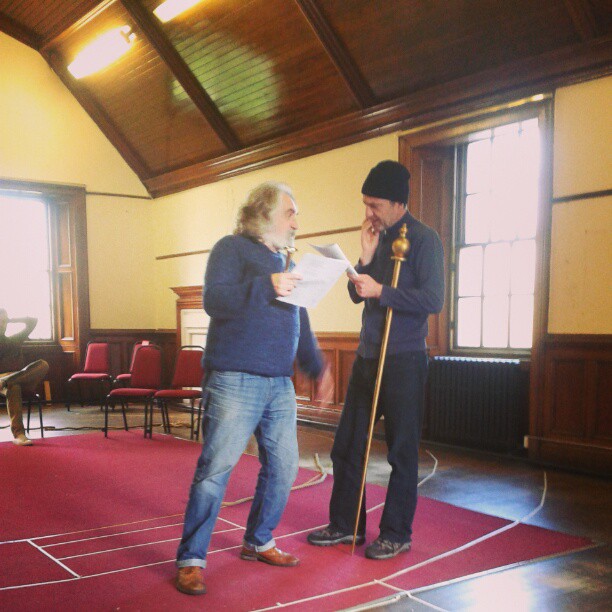We began the day by looking at the relationship between Diligence, Rex and Folly at the end of the play and considered whether Folly was known to the court. Perhaps Folly, given his centrality to Scottish political discourse (shown by his privileged place in the architecture of Stirling, and the craftsmanship devoted to this particular Stirling Head) is the final piece of the jigsaw of Rexâs court. Gregory Thompson noted how Follyâs sermon repeats and inverts the two âlegitimateâ sermons the audience has just witnessed taking place in parliament.
When Folly calls all Kingâs âfoolsâ, is this a moment at which he goes too far, or is Diligence playing the straight man by saying Folly has gone mad at this point â creating the space for the king himself to decide whether this is the case or not.  This will be heightened in performance by having Folly whisper some of his criticisms of political power to Diligence, only to have Rex urge the fool to speak to him as well. Perhaps the weak king seems to have learnt how to be a true Renaissance monarch by the end of the play.
We looked at the hanging sections in the afternoon, and found that once again, paramount was the rhythm â they are the tides on which meaning is carried. It is notable that when a part of the text doesnât ring true aurally for the actors, it is usually a problem with editing or anglicising and that the ears of the company are able to detect it.







